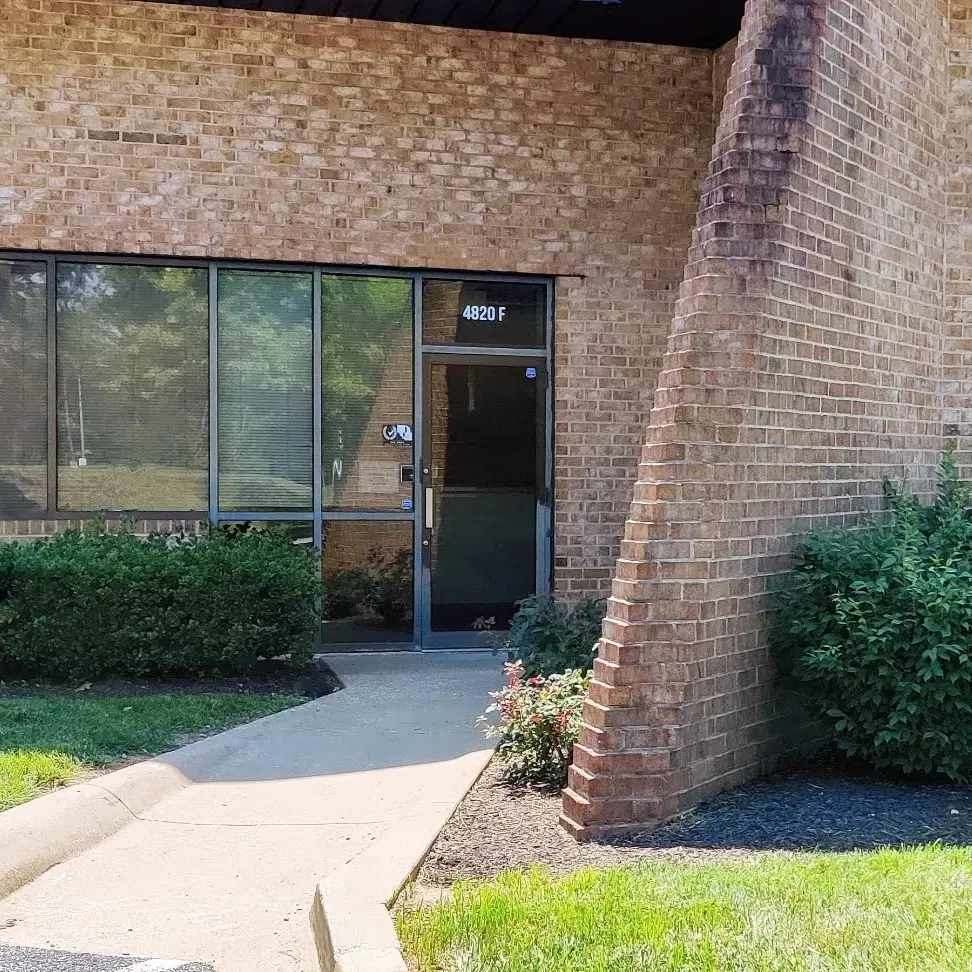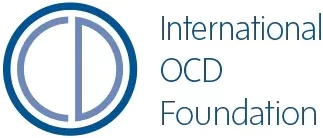In person & online ocd therapy
therapy for scrupulosity
Evidence-based therapy for scrupulosity OCD in Baltimore, Maryland. Get practical help with intrusive thoughts, moral and religious obsessions, & guilt.

member

yisrael Zev schwartz, lcpc
Experienced OCD Therapist
Scrupulosity OCD Therapist in Baltimore, Maryland

Hi! 👋 Thanks for visting my website. I’m a Maryland licensed professional counselor specializing in obsessive compulsive disorder and scrupulosity. As a professional, a person of faith, and a member of a religious community, I understand the importance of following your religious principles while also addressing anxiety and OCD. My approach to treatment respects and supports your faith, helping you navigate scrupulosity without compromising your beliefs. I have a deep understanding, respect, and appreciation for religious observance and work to ensure that therapy aligns with your values while providing the tools to manage OCD effectively. Additionally, I recognize that scrupulosity is not limited to religious concerns. Many individuals struggle with intense moral or ethical perfectionism, often referred to as secular scrupulosity.
If you’re looking for practical evidence based treatment for OCD please don’t hesitate to reach out. I look forward to speaking with you!
Specialized OCD treatment that works
Evidence based scrupulosity oCD therapy
- CBT – Cognitive Behavioral Therapy
- ERP- Exposure Therapy with Response Prevention
- ACT- Acceptance & Commitment Therapy
Our Google Reviews
Effective Scrupulosity Treatment in Baltimore, Maryland
Find a Scrupulosity OCD Therapist Near You
Online and In-Person Therapy Options for Scrupulosity in Maryland
Scrupulosity OCD Treatment in Baltimore City & County, Carrol County, Howard County, Montgomery County, and Throughout Maryland
Our office is centrally located in Baltimore near Pikesville, and easy to access from surrounding areas in Baltimore City, Baltimore County, Carroll County, and Howard County. Prefer online therapy? We provide teletherapy services throughout Maryland. If you’re looking for help with scrupulosity in Montgomery County or if you live more than 20 minutes away, consider transitioning to teletherapy after the first few in person appointments.
Introduction to Scrupulosity: An Overview of religious and moral OCD
Definition & Meaning of scrupulosity
Scrupulosity is a type of obsessive-compulsive disorder (OCD) characterized by excessive worry of violating religious beliefs or acting immorally and unethically. People with scrupulosity experience doubts about performing religious practices correctly or intrusive thoughts about sin and blasphemy. They may fear punishment from G-d and engage in compulsive behaviors such as excessive prayer, repeated confession, or frequently seeking reassurance and clarification from family members and religious figures to ensure they are following rituals properly. Religious obsessions are one of the most common themes in OCD, affecting up to a third of individuals with the disorder. Scrupulosity can interfere with daily life, causing significant anxiety, guilt, and distress. Without treatment, obsessive fears and compulsive rituals can become overwhelming and time-consuming.
Get Help for Scrupulosity in Baltimore, Maryland – Schedule a Free Consultation Today
Scrupulosity symptoms
How Scrupulosity Affects Daily Life and Mental Health
Scrupulosity can deeply affect daily life and mental health by creating a constant sense of doubt, fear, and emotional distress. Individuals struggling with scrupulosity often feel compelled to engage in repetitive mental reviews and rumination, excessive prayer, repetition, or confession to alleviate guilt, even when they have done nothing wrong. This overwhelming preoccupation with morality or religious observance can lead to significant anxiety, avoidance of certain activities, and difficulty making everyday decisions. Over time, these symptoms can contribute to exhaustion, guilt, shame, strained relationships, and a diminished sense of well-being, as the person feels trapped in an unrelenting cycle of self-doubt and reassurance-seeking.
Signs You May Have Scrupulosity OCD
- Excessive mental review and rumination – replaying past actions or thoughts to check for wrongdoing, often getting stuck in an endless loop of self-examination.
- Repeatedly performing religious commandments or rituals – feeling the need to redo prayers, blessings, or other religious acts to ensure they were done “correctly” or with the “right” intent.
- Compulsive checking and seeking reassurance – repeatedly consulting religious leaders, friends, or family to confirm that an action was morally or spiritually acceptable.
- Avoiding certain activities – staying away from social situations, work, or hobbies due to fear of moral failure.
- Difficulty making decisions – fearing any choice could be morally or spiritually wrong.
- Feeling unworthy or constantly guilty – struggling to feel at peace despite following religious or ethical principles.
- Intrusive thoughts – distressing thoughts about morality, sin, or religious themes that feel impossible to control.
This cycle can be exhausting and make it difficult to engage in daily life, but recognizing these patterns is the first step toward breaking free.
Get Therapy for Scrupulosity
Evidence-Based Treatment for Scrupulosity
Cognitive-Behavioral Therapy (CBT) and ERP for Scrupulosity
Effective treatment for scrupulosity involves evidence-based approaches that help individuals break free from obsessive doubt and compulsive behaviors while maintaining a healthy relationship with their faith. An important goal in therapy is to help individuals distinguish between genuine religious beliefs and OCD-driven fears so they can engage in their faith in a way that feels meaningful rather than distressing.
Cognitive Behavioral Therapy (CBT)
CBT is a well-established treatment for OCD, including scrupulosity. It helps individuals identify and challenge irrational beliefs that drive compulsive behaviors. By recognizing how thoughts contribute to anxiety and learning to reframe them in a more balanced way, individuals can reduce distress and regain a sense of control. CBT also emphasizes reducing reassurance-seeking and avoidance, which can reinforce obsessive thinking.
Exposure and Response Prevention (ERP) For Scrupulosity
ERP is a specialized form of CBT that involves gradually confronting feared situations while resisting compulsions. For scrupulosity, this might include purposely sitting with uncertainty about whether a prayer was recited correctly or refraining from seeking reassurance about moral concerns. Over time, ERP helps individuals build tolerance for doubt and anxiety, reducing the need to engage in compulsive rituals.
Acceptance and Commitment Therapy (ACT)
ACT focuses on helping individuals relate to their thoughts in a different way rather than trying to eliminate them. Instead of engaging in endless debates about morality or seeking certainty, ACT encourages psychological flexibility, mindfulness, and acceptance of intrusive thoughts without acting on them. This approach helps individuals prioritize their values and engage in religious or ethical practices in a way that is fulfilling rather than driven by fear.
By applying these therapeutic approaches, individuals with scrupulosity can work toward reducing distress while maintaining a healthy and meaningful connection to their faith.
Scrupulosity Therapy: Frequently Asked Questions
What is scrupulosity, and how is it different from religious devotion?
Scrupulosity is a form of OCD that causes excessive fear and doubt about morality, religious observance, or ethical correctness. Unlike genuine religious devotion, which brings meaning and connection, scrupulosity leads to anxiety, repetitive rituals, and distress.
Signs of scrupulosity include:
- Repetitive religious rituals (prayer, confession, checking) done to relieve anxiety, not devotion.
- Fear of sinning unintentionally or obsessing over minor moral issues.
- Seeking constant reassurance from religious leaders, friends, or online sources.
- Avoiding religious or moral situations out of fear of making a mistake.
Therapy helps distinguish healthy religious practice from OCD-driven compulsions, so you can engage with your faith or values in a way that brings peace rather than fear.
How does therapy help with scrupulosity?
Scrupulosity treatment uses evidence-based approaches to reduce obsessive doubts and compulsions while respecting your values. Common therapies include:
- Cognitive Behavioral Therapy (CBT) – Helps reframe obsessive thoughts and reduce excessive guilt.
- Exposure and Response Prevention (ERP) – Teaches you to tolerate uncertainty without engaging in compulsions.
- Acceptance and Commitment Therapy (ACT) – Encourages mindfulness and helps you focus on living by your values rather than chasing certainty.
By learning to accept uncertainty and break free from compulsive rituals, you can experience faith and ethics in a healthier, more fulfilling way.
Do I need treatment for scrupulosity?
You may benefit from treatment if scrupulosity is:
- Causing distress or interfering with daily life.
- Making religious or ethical decisions feel overwhelming.
- Leading to excessive rituals, checking, or reassurance-seeking.
- Preventing you from engaging in your faith or values with peace of mind.
If these concerns resonate with you, therapy can help you regain control and rebuild a healthier relationship with your beliefs.
How long does scrupulosity treatment take?
Treatment varies by individual, but many people see significant improvement within 12 to 20 weeks of structured therapy, particularly with ERP. Progress depends on:
- Consistency with therapy and exposures.
- Willingness to tolerate uncertainty.
- The severity of compulsions.
Ongoing strategies help prevent relapse and ensure long-term relief.
Can I keep practicing my faith while getting OCD treatment?
Yes! Effective scrupulosity treatment respects your faith and helps you engage with it in a meaningful way—without fear or compulsion. Therapy helps you:
- Distinguish religious practice from OCD-driven behaviors.
- Reduce distress while maintaining your spiritual or ethical values.
- Experience faith in a way that brings peace rather than anxiety.
You don’t have to choose between treatment and your beliefs—therapy helps you reconnect with them in a healthier way.
Can I have scrupulosity if I’m not religious?
Yes—scrupulosity isn’t just about religion. Secular scrupulosity involves obsessive fears about morality, ethics, or personal integrity. You might struggle with:
- Overanalyzing past actions to make sure you were “good.”
- Obsessing over fairness or harm in minor situations.
- Seeking reassurance from others about whether you made the right decision.
- Feeling excessive guilt over perceived moral mistakes.
Like religious scrupulosity, secular scrupulosity can be treated with CBT, ERP, and ACT, helping you develop a more balanced relationship with moral concerns.
ready to get started with scrupulosity OCD therapy?
We’re accepting new patients and look forward to speaking with you.